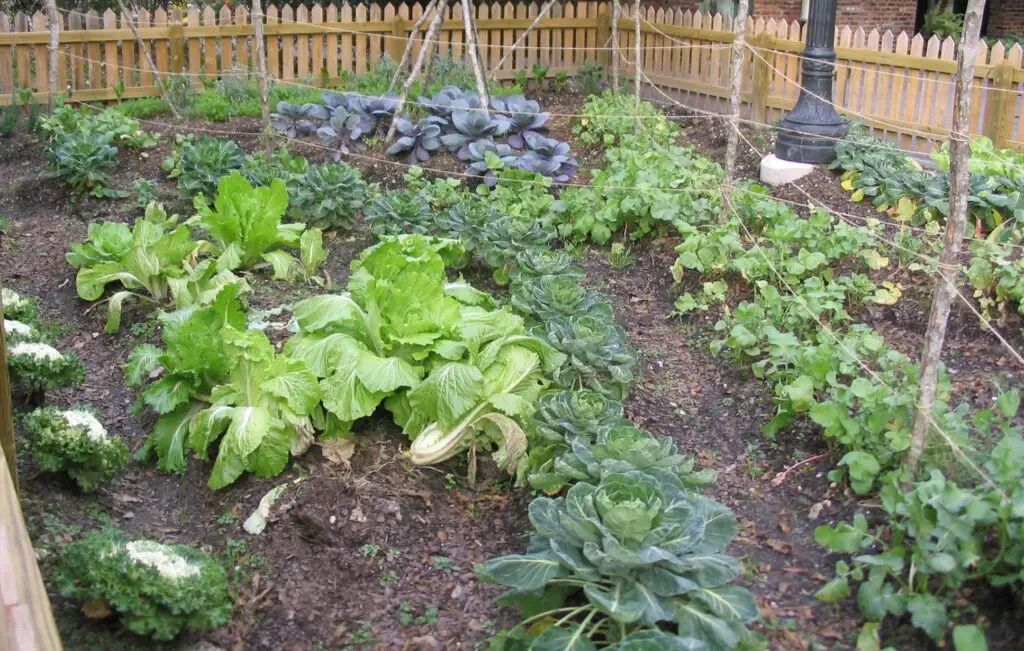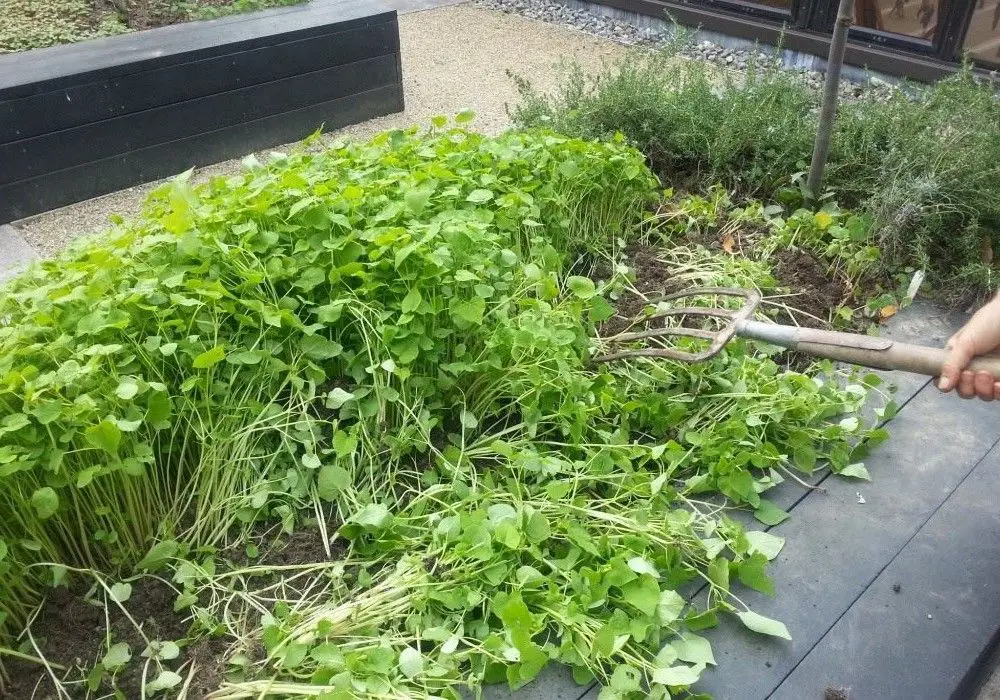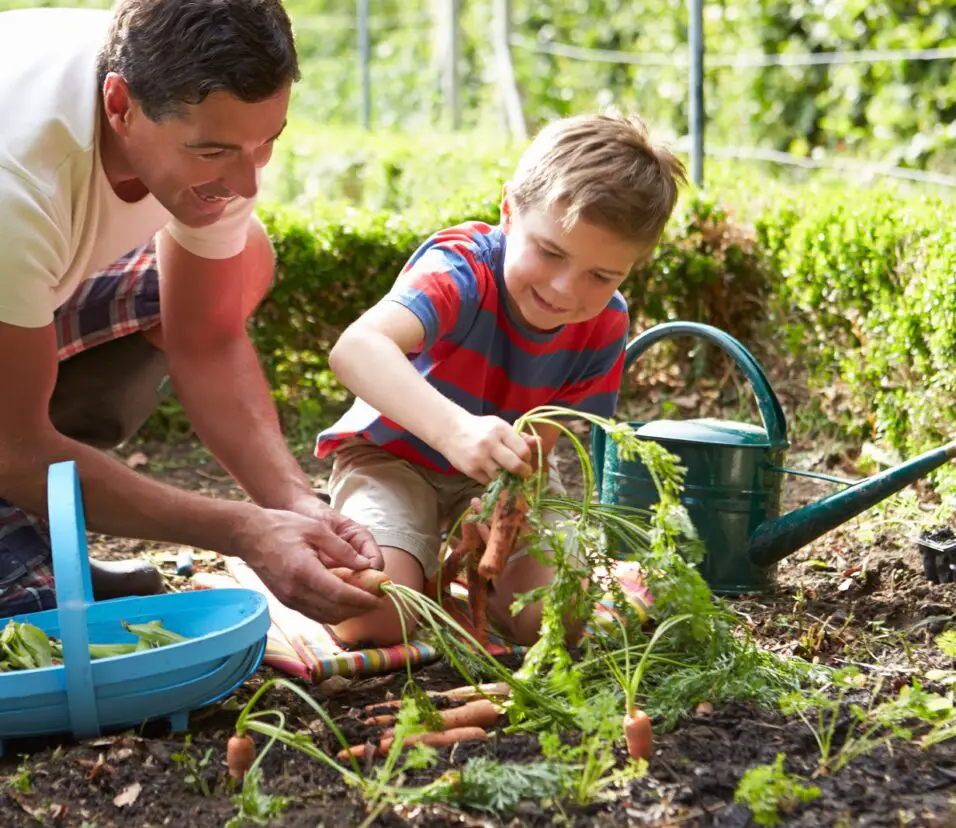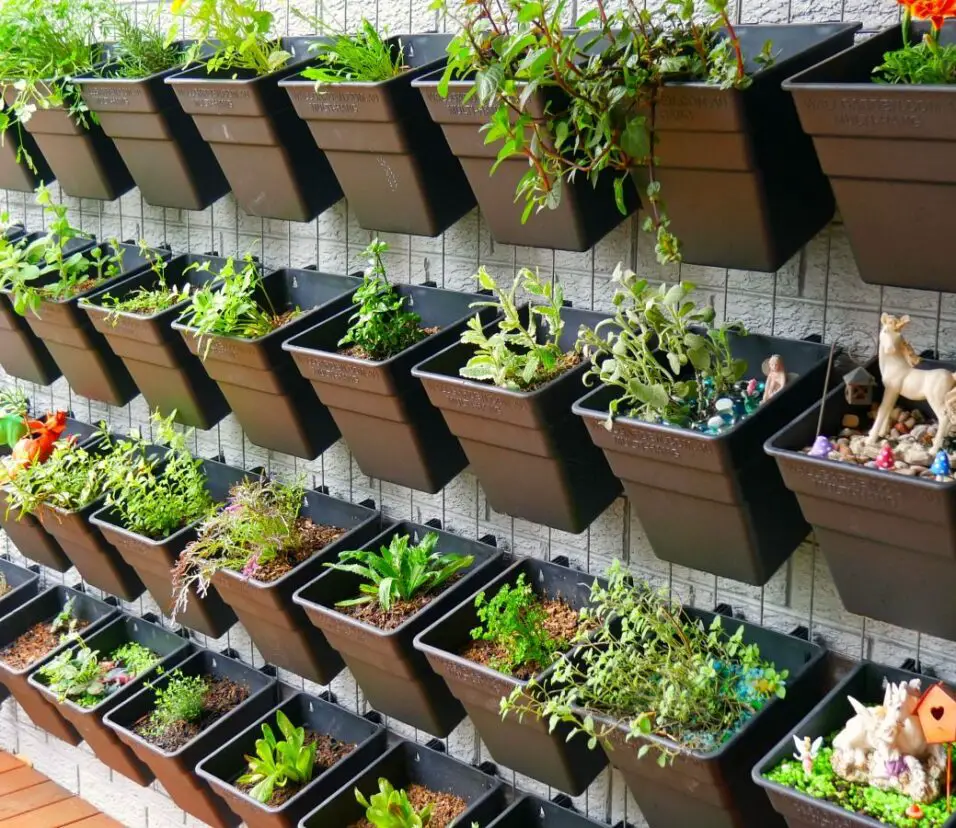What Manure Is Best For Vegetable Gardening
Introduction
In the world of vegetable gardening, the choice of fertilizers plays a pivotal role in determining the health, vitality, and ultimate yield of your crops. Among the various options available, one natural powerhouse stands out: manure. Manure, a time-honored organic fertilizer, has been utilized for centuries to enrich soil and promote plant growth. Composed of decomposed animal waste, bedding materials, and microbial activity, manure offers a balanced blend of essential nutrients, organic matter, and beneficial microorganisms that foster a thriving garden ecosystem.
When it comes to selecting the best manure for vegetable gardening, several factors come into play. Different types of manure, such as cow, horse, chicken, and sheep, each bring unique attributes to the table in terms of nutrient composition and release rates. The nitrogen, phosphorus, and potassium content in manure varies, influencing its suitability for particular crops and soil conditions. Moreover, manure’s capacity to enhance soil structure, water retention, and microbial diversity makes it a valuable asset for sustainable and resilient gardening practices.
In this exploration of the ideal manure for vegetable market gardening, we will delve into the distinctive qualities of various manure types, their benefits and considerations, and provide practical insights into their application. Whether you are an experienced gardener seeking to optimize your nutrient management or a novice embarking on your first gardening venture, understanding the nuances of manure utilization can undoubtedly elevate the health and productivity of your vegetable garden.

Is chicken or cow manure better for vegetable garden?
Chicken manure is fast-growing in popularity. That’s because it is relatively high in nutrients when compared to horse and cow manure. Unlike cows, horses and even sheep, chickens have a much more varied diet, which makes their droppings highly valuable. It tends to be high in nitrogen and phosphorous.
Both chicken and cow manure offer distinct advantages for vegetable gardens, each with its own set of attributes to consider. Chicken manure tends to be higher in nitrogen, making it an excellent choice for promoting lush foliage growth. Its relatively fast nutrient release rate can benefit leafy greens and crops with high nitrogen demands. However, its potency requires careful application to prevent over-fertilization.
On the other hand, cow manure boasts a more balanced nutrient profile, including nitrogen, phosphorus, and potassium. This makes it suitable for a wide range of vegetables, encouraging overall plant development, flower formation, and root growth. Cow manure also enhances soil structure and water retention, contributing to long-term soil health.
Ultimately, the choice between chicken and cow manure depends on your specific gardening goals and the needs of your crops. Integrating both types can provide a comprehensive nutrient supply, ensuring a thriving vegetable garden. Regular soil testing can guide you in determining the most appropriate manure and application rates for your soil’s unique characteristics, helping you achieve optimal results in your vegetable gardening endeavors.
Is compost or manure better for vegetable gardens?
Compost Vs Manure For Vegetable Garden
Your better pick for veggie gardens? Compost! Although pasteurized or hot-composted manure should be free from disease-causing organisms, compost is still a safer choice for nourishing soil that will grow your food.
Both compost and manure offer valuable benefits to vegetable gardens, albeit through slightly different mechanisms. Compost is a rich, well-decomposed mixture of organic materials that enhances soil structure, water retention, and microbial diversity. It provides a slow-release of nutrients and promotes a balanced, long-term nutrient supply. Compost also contributes to overall soil health, improving drainage and reducing the risk of soilborne diseases.
On the other hand, manure, derived from animal waste, delivers a potent source of nutrients like nitrogen, phosphorus, and potassium. It can provide a quick nutrient boost, particularly suitable for plants in their rapid growth phases. However, due to its high nutrient content, careful application is necessary to prevent over-fertilization, which can harm plants and contaminate water sources.
The choice between compost and manure often depends on the specific needs of your crops and soil conditions. Compost is beneficial for maintaining soil structure and supporting long-term fertility, while manure offers a quicker nutrient release for specific growth stages. A blend of both can yield synergistic effects, promoting optimal plant growth, soil vitality, and sustainable gardening practices.
Is cow manure good for all vegetables?
Cows’ four stomachs digest food so thoroughly that little weed seeds pass through, so you don’t have to worry.
Due to its balanced nutrient composition and soil structure benefits, cow manure can benefit many vegetable crops. Cow dung contains nitrogen, phosphate, and potassium, making it appropriate for leafy greens, root crops, and floral plants.
Its moderate nutrient release rate sustains plant growth and development. Cow manure’s organic content improves soil water retention, drainage, and aeration, which are essential for vegetable growing.
When employing cow manure, several variables must be considered. Due to its high nitrogen concentration, fresh cow manure may cause excessive foliage growth and stunt fruiting in some plants. This can be solved by composting or maturing manure. To avoid overfertilization, know your soil’s nutrient levels. Regular soil testing will help you determine cow dung quantities.
In conclusion, cow manure can be used on a variety of vegetables, but its application should be based on crop nutrient needs, manure age, and soil type.
Is chicken manure good for growing vegetables?
Put simply, it is one of the best types of organic manure based fertilisers to use. Chicken manure fertiliser has a balance of natural nutrients, including potassium, phosphorus and nitrogen. Manure Compost is a fabulous source of nutrients for fruit trees, vegetable gardens and even your lawn.
Chicken manure is ideal for leafy greens like lettuce, spinach, and kale and crops that need a lot of vegetative growth.
Due to its potency, chicken manure should be used cautiously. Its high nitrogen content can cause excessive growth and stunt fruiting in tomatoes, peppers, and other flowering vegetables. Composting or aging chicken dung before use reduces nitrogen levels and makes it kinder on plants.
Chicken manure’s quick nutrient release may necessitate careful monitoring to avoid overfertilization. Combining it with compost or slower-release fertilizers can help sustain nutrient levels throughout the growing season.
Chicken manure can be a valuable resource for vegetable gardens, particularly for crops that benefit from increased foliage growth. Proper management, including composting and controlled application, will ensure that its benefits are harnessed while minimizing potential drawbacks.
What are the key factors that determine the suitability of different types of manure for vegetable gardening?
Several key elements determine the efficacy and plant growth of different manures for vegetable farming. Cow, chicken, horse, and sheep manure have distinct nitrogen, phosphorus, and potassium ratios, which is important. This nutritional balance influences vegetable crop needs, since some prefer nitrogen, while others prefer phosphorus or potassium.
Manure nutrient release rate also matters. Chicken dung releases nutrients faster, making it ideal for crops that need nutrients quickly. Cow manure, on the other hand, releases nutrients slowly, making it suited for long-term nourishment.
The organic matter in manure also affects soil structure, water retention, and microbial activity. This affects root growth, nutrition absorption, and plant health. Potential pollutants like diseases or weed seeds affect manure applicability. Correct composting or aging reduces these dangers.
The nutrient needs, growth stages, and soil properties of vegetable crops should determine the manure used. Considering these parameters ensures that the manure used improves soil fertility, plant health, and gardening success.
How does the nutrient content in cow manure compare to chicken manure, and how might this influence their effectiveness for various vegetable crops?
Cow manure and chicken manure exhibit distinct nutrient compositions that influence their effectiveness for different vegetable crops. Cow manure typically contains a balanced combination of nutrients, including nitrogen, phosphorus, and potassium, making it suitable for a wide range of vegetables. Its moderate nutrient release rate ensures consistent nourishment over time, benefiting overall plant growth, flowering, and root development.
In contrast, chicken manure is notably higher in nitrogen content, making it well-suited for promoting rapid vegetative growth in plants. This makes it particularly effective for leafy greens and crops that demand substantial foliage, but excessive use can lead to imbalanced growth and reduced fruiting in flowering vegetables.
The varying nutrient profiles of these manures necessitate careful selection based on the specific needs of each vegetable crop. Cow manure’s balanced composition caters to a broader spectrum of crops, while chicken manure’s nitrogen-rich nature suits plants requiring vigorous vegetative growth. By understanding these differences and adjusting application rates accordingly, gardeners can harness the unique benefits of both manure types to optimize the health, productivity, and quality of their vegetable crops.
Could you explain the significance of the nitrogen-phosphorus-potassium (NPK) ratio in determining the appropriateness of manure for specific vegetables?
By meeting different crops’ nutrient needs, manure’s nitrogen-phosphorus-potassium (NPK) ratio determines its suitability for specific veggies. Chicken manure is great for spinach and lettuce because nitrogen (N) promotes vegetative development and lush foliage.
Root development, flower creation, and fruiting require phosphorus (P). Cow manure, which has a balanced NPK ratio, provides phosphorus to tomatoes, peppers, and cucumbers, which need strong root systems and abundant flowering.
Potassium (K) improves plant health, disease resistance, and fruit quality. Potatoes, carrots, and strawberries benefit from potassium-rich manures.
Knowing the NPK ratio of different manures helps gardeners choose fertilizers for their vegetable crops. Gardeners can succeed in vegetable growing by matching fertilizer delivery to plant needs for best development, yields, and output.
What precautions should gardeners take when using chicken manure to prevent potential issues related to excessive nitrogen and plant growth?
When utilizing chicken manure as a fertilizer in vegetable gardening, gardeners must exercise caution to mitigate potential issues stemming from its high nitrogen content. To prevent excessive nitrogen and overly vigorous plant growth, several precautions are recommended.
First, composting or aging the chicken manure is crucial. Allowing the manure to decompose breaks down its nitrogen content and tempers its potency, making it gentler on plants. This also reduces the risk of burning plant roots due to concentrated nutrients.
Second, careful application is essential. Gardeners should follow recommended application rates, avoiding over-fertilization that can lead to imbalanced growth and decreased fruiting. Adequate mixing of the manure into the soil ensures even distribution of nutrients.
Lastly, pairing chicken manure with other low-nitrogen amendments, like compost or aged manure, can help create a balanced nutrient profile in the soil.
By adhering to these precautions, gardeners can harness the benefits of chicken manure while preventing potential drawbacks, fostering healthy plant growth and successful vegetable cultivation.

Conclusion
In the world of vegetable gardening, the choice of manure as a fertilizer has a profound impact on the health, vigor, and productivity of crops. Throughout this exploration, we’ve come to understand that no single type of manure reigns supreme; instead, the selection depends on a complex interplay of factors. Cow manure, with its balanced nutrient composition and gradual release, proves versatile for a wide array of vegetables, fostering well-rounded growth and overall soil enrichment. On the other hand, chicken manure’s high nitrogen content lends itself to encouraging rapid foliage development, making it a boon for leafy greens.
The key lies in discerning the unique requirements of each vegetable garden species, considering growth phases, nutrient demands, and soil characteristics. By meticulously assessing nitrogen-phosphorus-potassium ratios, nutrient release rates, and potential risks of over-fertilization, gardeners can tailor their approach for optimal outcomes. Composting or aging manure, strategic mixing, and prudent application rates offer vital safeguards against pitfalls like excessive growth and nutrient imbalances.
Ultimately, a thoughtful combination of manures and other fertilization methods can yield remarkable results. The journey to discovering the best manure for vegetable gardening underscores the importance of a holistic approach that considers both the needs of the plants and the health of the soil. Armed with this knowledge, gardeners can cultivate not only bountiful harvests but also sustainable and thriving garden ecosystems that echo the beauty and resilience of the natural world.








